Egypt appealed to the UN Security Council to protest Ethiopia’s intention to begin filling the reservoir of the Great Ethiopian Renaissance Dam (GERD) this year. Cairo is trying to warn the international community that Ethiopia’s plans could lead to serious losses for Egypt – up to half of all freshwater the country receives. As a result, the country may face an environmental and humanitarian disaster. Despite Cairo’s attempts to reach an agreement with Addis Ababa and Egypt’s concessions (Egypt is not against construction of a hydroelectric power plant, but would like to agree on water intake parameters), Ethiopia refuses to make concessions, which exacerbates the tensions.
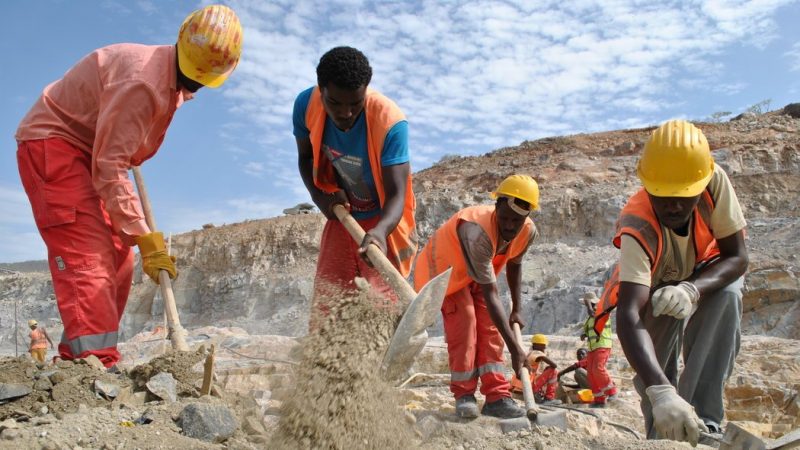
Wikipedia/The Grand Ethiopian Renaissance Dam
The last opportunity for negotiations
In Egypt’s letter to the UN Security Council, according to UAE’s The National, Cairo talks about its readiness for negotiations, showcasing the flexible position of the modern Egyptian leadership. It is ready for negotiations between Ethiopia-Egypt-Sudan with international mediation.
According to Ahram Online, Sudan now supports Egypt, which strengthens Cairo’s negotiating position. Ethiopian Prime Minister Abiy Ahmed sent letters to Egyptian and Sudanese leaders Abdel-Fattah El-Sisi and Abdalla Hamdok on April 10. However, the Ethiopian proposals were rejected by both countries. (http://english.ahram.org.eg/News/368847.aspx).
With the construction of GERD, Ethiopia hopes to become the main electricity exporter in Africa and prepare the opportunity for domestic industry. At the same time, the reservoir will make it possible to reduce agricultural dependency on rain, which should have a positive impact on the development of agriculture in the country. The Ethiopian government’s advocates tend to use these arguments to protect its plans to exploit the Nile’s natural resources.
The actions of all parties to the dispute require a responsible approach. The Nile is not someone’s exclusive property. It is the property of Africa and humanity as a whole. At a minimum, it’s the property of all the countries that are directly around it. The Nile’s water management issues must be addressed together, otherwise Ethiopia’s unilateral actions could become a dangerous precedent, followed by fierce water wars throughout the world.
The looming crisis
But what happens if Ethiopia rejects the last opportunity to negotiate with Egypt?
Given the difficult situation with the protests in Egypt last year, the Egyptian government cannot afford to fail and kick off a serious social crisis. As we wrote earlier, there is a danger of armed conflict between Egypt and Ethiopia, up to the point sabotage, bomber raids or missile attacks. In other words, this war of worlds could easily become a real war.
Will Ethiopia force Egypt to carry out the first strike of the African water wars?
The authorities in Addis Ababa have two choices if they really want to avoid an escalation of the conflict: to agree to new negotiations and using this excuse abandon plans to fill the reservoir in June, or to come up with another excuse so that steps towards de-escalation do not look like concessions to Egypt. For example, they could use to the coronavirus or the difficult situation in the country.
Ironically, the coronavirus could be helpful. The fact is that the need to launch a giant hydroelectric power plant on the Blue Nile was previously explained by the country’s high rate of economic growth. However, the crisis associated with the coronavirus makes it necessary to reconsider the pace.
Recently, the IMF has reduced the GDP growth forecast for Ethiopia for 2020 down to 3.2% from 6.2%. Similar trends are observed in other African countries. This means a decrease in demand for electricity should be expected. Launching the hydropower plant right now will make no sense and there will be time to bargain with Egypt.
However, the drop in GDP may also force the Ethiopian authorities to launch an infrastructure project that will allow the Ethiopian political elite to get real money for selling electricity and reduce the cost of production in this African country.
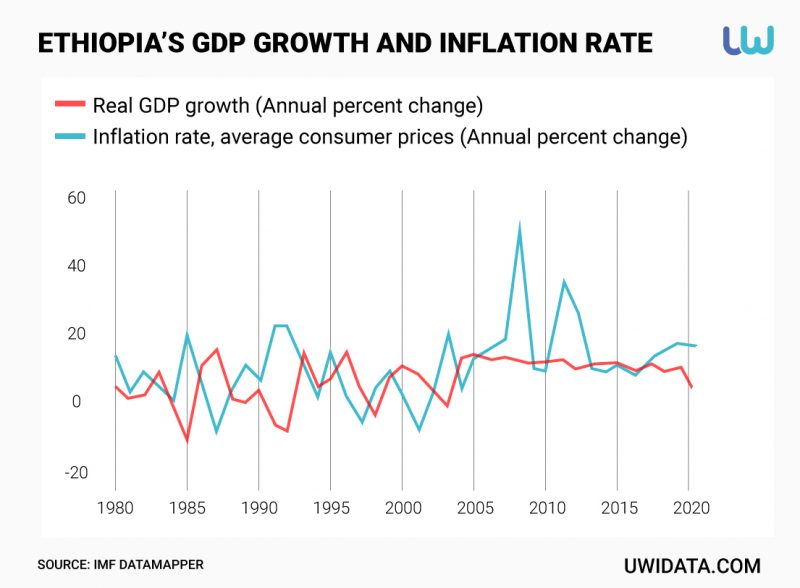
Colossus on clay legs
Industry now accounts for 10% of Ethiopia’s GDP. However, by the end of the year, there was expected to be 30 industrial parks in Ethiopia in textile and light industry, machinery, IT and communications, but this development was arrested by the current pandemic.
Ethiopia has been a leader on the African continent in terms of industrial growth rates during the two years of Abiy Ahmed’s premiership. However, the basis for this leadership has been extremely low wages. The report by the New York University Stern Center for Business and Human Rights argues that Ethiopian workers earn the lowest wages in the world – much lower than in other African countries or in Bangladesh and Southeast Asian countries.
The shameless exploitation of workers is covered by the pseudo-patriotic rhetoric of the authorities, who declare that “real” Ethiopians should be silent and work.
In this situation, attributing the country’s problems to stubborn Egypt, which supposedly does nothing but harm Ethiopia, is very beneficial for reducing protest sentiment. However, having received cheaper electricity, foreign companies that have come to Ethiopia will hardly raise the salaries of its residents, rather than putting the increased super profits in their pockets.
At the same time, it will not be possible to endlessly parasitize on almost free labor, low wages mean low qualification of personnel, and thus – low quality of production. It is hardly possible to move to any high-tech production with this level of economy.
At the same time, the global crisis related to the coronavirus and general trends in the world economy will not blow Ethiopia away. Already, material and garment factories in the country are experiencing serious difficulties due to the breakdown of supply chains from abroad.
Tourism, which accounted for up to 10% of Ethiopia’s GDP and half of its export earnings, has been suspended. Meanwhile, the coronavirus has hit airlines around the world, including Ethiopian Airlines – the largest airline in Africa.
The crisis will hit the poorest segments of the population hardest, which will lead to its marginalization, squeezing the people out into criminal groups. Such people can become breeding grounds for radicals of different kinds. At the same time, as incomes decline, we should expect increased competition for the remaining sources of wealth among elites in Ethiopia.
And given the country’s division along tribal and ethnic lines, such increased competition, coupled with the emergence of a large number of disadvantaged and radicalized people, threatens numerous conflicts at all levels: from conflicts over fields and pastures at village level, to conflicts between individual regions and the federal government. At worst, if the global economic downturn continues, Ethiopia will become one of the points of renewed civil wars in Africa.
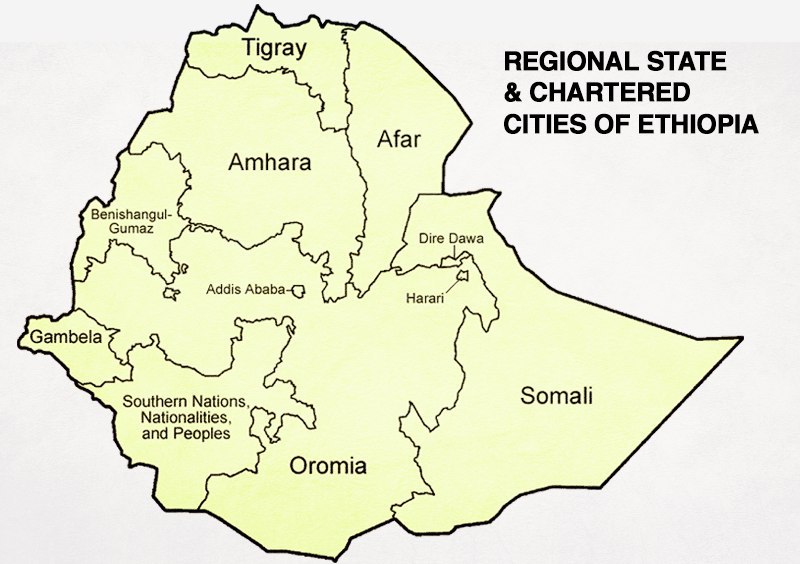
After the current Ethiopian prime minister Abiy Ahmed came to power, Ethiopia made a turn from a one-party dictatorship and from cooperation with China to close cooperation with European countries and the United States. China retains a lot of influence in Ethiopia, but the country has opened up to Western companies to the maximum extent possible. Their arrival was the reason for the “Ethiopian miracle” – but the miracle is based on the poverty of millions of people. Ethiopia continues to close the income ratings of the average citizen ($650), second even to Mozambique ($660), and the country is regularly shaken by bloody inter-communal conflicts and separatist protests.
Signs of destabilization
Abiy Ahmed was the first Oromo to occupy the highest governmental post in a country where the ethnic minority Tigray ruled the country for 28 years.
The Tigray People’s Liberation Front, originally a Marxist insurgent ethnic group de facto led Ethiopia from 1991 to 2018, being the nucleus of the Ethiopian People’s Democratic Movement (EPDM). Tigray made up only 6% of the country’s population, but concentrated all power in their hands. Now they are pushed out of power, but they have ambition, combat experience and management capabilities. This reinforces separatist tendencies among Tigray, especially if they are supported by allies from abroad.
Until last year, The Tigray People’s Liberation Front in Ethiopia was part of Ethiopia’s government coalition, but later emerged from it, embarked on an open confrontation with Addis Ababa. Now, The Tigray People’s Liberation Front said that he intended to hold postponed elections by the Government at any cost – without any coordination with the federal centre.
This could lead to a serious conflict. The decision of the Tigray region threatens the national unity of Ethiopia.
The Tigray, along with the Amhara people, is the ethno-cultural core of Habesha, predominantly a Christian population that considers itself the bearers of Ethiopian identity. If they choose separatism, they will soon be followed by other peoples and regions.
It is especially dangerous if the trends spread to the Oromo Region, the largest region in the country which occupies almost half of its territory. The current Prime Minister, a representative of this very people, is the first Oromo at the head of modern Ethiopia. The fact that the Tigrays have been pushed away from the leadership of the country makes them dissatisfied, but the government also has problems with Oromo.
The radical Oromo are now headed by influential and energetic media businessman and manager Jawar Muhammad, the US citizen and leading organizer of the 2016 Ethiopian protests and the key intellectual inspiration for the International Oromo Youth Association. In 2018, he brought Abiy Ahmed to power and now has a quarrel with a former associate.
Last year, the government brutally suppressed protests by supporters of Jawar Mohammed leaving Eighty-six people dead.
A book authored by Nobel prize winner @AbiyAhmedAli is being collected and burned to ashes by protesters. This is happening in a region supposed to be a major base/constituency for the PM. #Ethiopia #Oromia #jawar #abiyahmedali pic.twitter.com/Wn3ngKjP6P
— Beka Atoma Boru (@bek_boru) October 23, 2019
Today Jawar Mohammed is a member of Oromo Federalist Congress party (OFC) and fights for Oromo. At the same time, he has ambitions across Ethiopia and sees himself as the leader of a united opposition. The continuation of their conflict may lead to further destabilization in Ethiopia.
Coalition of Democratic Federalism statement on election postponement https://t.co/G2V0bFQFrN
— Jawar Mohammed (@Jawar_Mohammed) May 4, 2020
We should not forget how the Chief of Staff of the Ethiopian army, Seare Mekonen, was killed last July by his own bodyguard during a mutiny suppression in Amhara state. The Ethiopian authorities have accused Asaminew Tsige, Chief of Security of the State of Amhara, of attempting to organize a coup.
Meanwhile, the coronavirus epidemic has spurred domestic political tensions in Ethiopia. In 2020, parliamentary elections were to be held in the country. However, the National Electoral Board of Ethiopia announced its intention to postpone them. Many ethnic parties disagree, which may invoke a constitutional crisis this year.
The ideology of Ethiopian exclusivity in a divided country
Ethiopia is usually considered by Westerners to be a bastion of Christianity surrounded by the Islamic world of “savages.” This idea partly reflects the worldview that the Christian nations of Habeshas – the Amhara and Tigray peoples – have managed to impose on other Ethiopian nations, including Muslims and Animists. This factor and references to ancient history have formed a special ideology of exclusivity – “enlightened” Ethiopia, a fragment of ancient civilization, surrounded by barbaric peoples.
Another factor that shaped the ideology of Ethiopian exclusivity is that Ethiopia was the only independent country in Africa until its conquest by the Italians in 1936, with the exception of Liberia, while European powers had long divided parts of the continent among themselves.
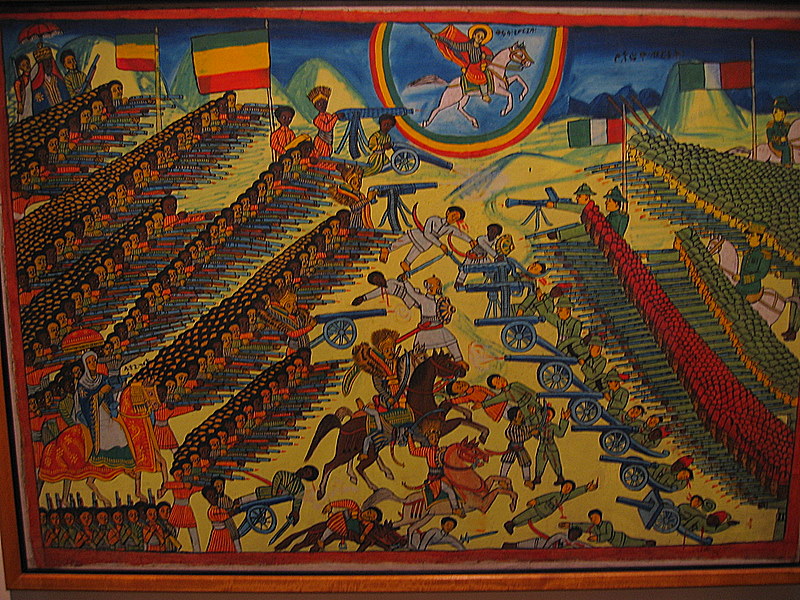
This ideology of exclusivity is behind Ethiopia’s attempts to claim a special place in Africa. It is also the reason for hostility towards Egypt, arrogance towards the strongest country in the Arab world, unwillingness to make concessions and compromise on the GERD issue.
The Ethiopian Dam: a game bigger than generating electricity
However, behind this layer of ideology lies the reality of a historically divided country, which has been torn apart by tribal and inter-clan wars for centuries, where peace and stability are rare exceptions. Now, Ethiopia is leading in the global anti-rating of refugees and displaced persons – over two million citizens have already left their homes. Of the country’s 80 major ethnic groups, more than 20 are seeking referendums on their own autonomy. Ethnic federalism as a principle of statehood in present-day Ethiopia can in no way unite the country.
It is possible that the current Ethiopian authorities are deliberately pushing the country into confrontation with Egypt and Sudan, thinking that the presence of distinct external enemies can unite the population. However, such a hostile course may force Egypt and Sudan to start using intra-Ethiopian contradictions and support rebel groups as a means of pressure on the Ethiopian authorities.
The Great Ethiopian Renaissance Dam is placed in the Benishangul-Gumuz region, where the majority of the population is made up of the Nilo-Saharan peoples Berta and Gumuz who are ethnically and culturally neither related to Habesha peoples.
The peoples of Gumuz and Amhara are at odds in both Amhara and Benishangul-Gumuz provinces. In the last region, Benishangul-Gumuz, about 200 people were killed last year in tribal clashes. Can the permanent conflicts endanger the GERD? And what is if the adversaries of Ethiopia use some tribal thugs to stop it?
Dangerous predictions
Ethiopia is a step away from a constitutional crisis and economic collapse caused by both the coronavirus and the unhealthy nature of the Ethiopian de facto slave-based economy.
However, the country is in a state of permanent political crisis caused by the diverging interests of ethnic political groups that want more power and resources.
The Ethiopian authorities have demonstrated that they are struggling to maintain the country’s unity. Under these circumstances, attempts to demonstrate a special role in Africa and to escalate tensions with Egypt and Sudan appear to be extremely risky. Ethiopia’s opponents can take advantage of its problems, which will lead to the collapse of the existing security system in East Africa.
If the countries in the region fail to find the desired compromise by engaging in projects that do not divide but unite, this threatens to pose serious problems for all, and especially the people of Ethiopia. The Great River Nile should not divide, but unite African peoples, ensuring the equitable use of resources and the interests of Africa as the poles of a multipolar world. The problem is whether authorities of Egypt and Ethiopia can come to terms and who will serve as a mediator of the US fails – China, Russia (unfortunately Turkey is unlikely to come to terms with Egypt) or international institutions?
The crisis situation in Ethiopia is also a proof of the limits of “growth” in the neoliberal economic model. It cannot be a vehicle for the country’s development and already contains the prerequisites for a future crisis.







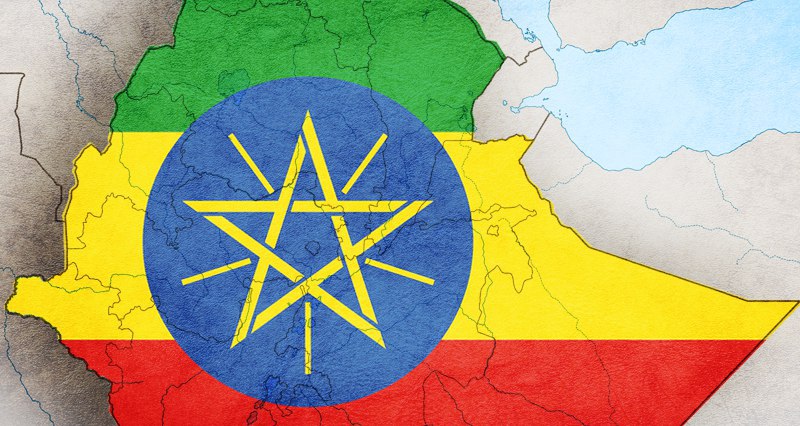





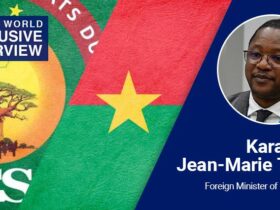
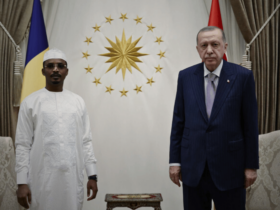


Leave a Reply